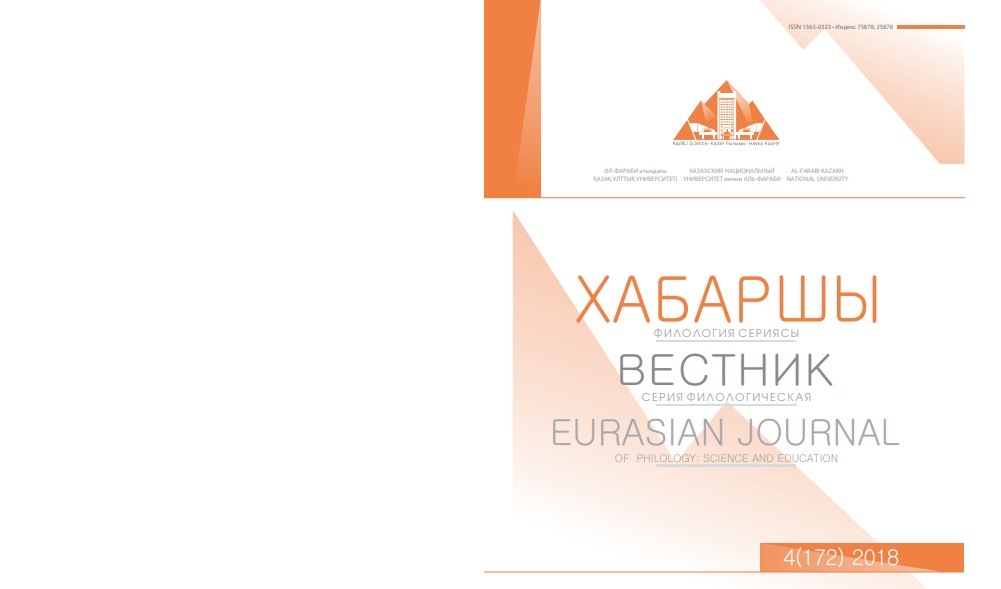Асан албанның поэтикалық мұрасы
Аннотация
Мақалада Асан мұрасы жайында сөз қозғалады. Әдебиет тарихында Албан Асан деген
атпен белгілі болған ақын ХІХ ғасырдың ІІ жартысы мен ХХ ғасырдың алғашқы жартысында өмір
сүрген. Ақынның бізге жеткен мұрасы көп емес. Сонымен бірге ұзақ уақыт бойы ақын мұрасы
қара тізімге ілініп жұрт назарына ұсынылмай келді. Тек тәуелсіздік алғаннан кейін ғана әдебиет
тарихына енгізіліп өлең кітабы жарық көрді. Ақынның ең алғашқы жинағы І. Жансүгіровтің
құрастыруымен өткен ғасырдың бас кезінде жарық көрген. Ақын шығармаларының басым
көпшілігі отарлыққа қарсылық және кеңестік жүйенің енгізген кейбір заң жүйелерін сынайды.
Бұл мақалада ақынның ел мен жерге деген бір шоғыр өлеңдері талданған. Онда туған жерге
деген сүйіспеншілік, халықтың тұрмыс тіршілігі, ел болашағы кеңінен жырланған. Айталық,
тоталитарлық жүйе дінді апиын ретінде түсіндірді. Сондайақ елдің берекебірлігінің бұзылып
арызқойлардың мансапқа таласулары шенеуніктердің шеншекпенге ұмтылуы сыналады. Қазақ
жеріне келіп жатқан қара шекпенділердің басқаша айтқанда шұрайлы жерінен айырылған қазақ
халқының тағдыртәлегі жырланған.
Мақала авторлары ақын өлеңдеріндегі осы мәселелерді қалай жырлағанын, қандай дәрежеде
тақырыпты ашқанын, өмір шындығы мен көркемдік шындықтың арақатынасын жанжақты терең
талдаған. Албан Асан мұрасының көпшілігі отарлыққа қарсылық негізде жазылған туындылар
болып есептеледі. Осы мәселелер көрсетілген мақалада жанжақты қарастырылады. Ақын
өлеңдерінің тақырыптықидеялық мазмұны ашылады. Көркемдік жүйесі сөз етіледі.
Түйін сөздер: мұра, ел, жер, отарлық, қазақ, халық, өлең, жыр, ақын, тұрмыс.






